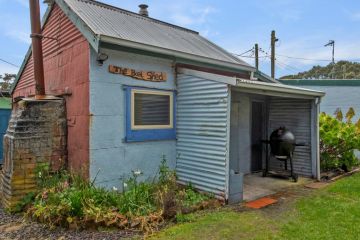Curriculum to career: VCE, IB, VCAL or VET?

Students make many decisions towards the end of their secondary schooling, but some of the most daunting come even before those last two years.
At the end of year 10, students have to choose which final diploma or certificate they’ll undertake at secondary school, which subjects will allow them to excel in their studies and lead to their chosen career.
With the Victorian Certificate of Education, the International Baccalaureate Diploma Program (offered at selected schools across Victoria), the Victorian Certificate of Applied Learning, and Vocational Education and Training to choose from, there is plenty to consider.
The experts at the Victorian government’s Youth Central (youthcentral.vic.gov.au, a website that offers education and job advice to people aged 12-25) suggest students should consider:
What interests them;
- The subject/s they’re good at;
- whether the subjects or curriculum they choose will lead to a job they are interested in; and,
- whether the subjects or curriculum will prepare them for their chosen further training or university course.
VCE
The VCE is the most popular final-years’ curriculum option for students as it is available in all Victorian secondary schools.
Some universities also offer VCE studies for students who might be looking to go back to school and earn their final certificate.
Requirements
To pass the VCE, students must study English in year 11 and 12. Other subject choices are open, allowing students to specialise in subjects they do well in, or are required to do to qualify for university.
While the ability to choose subjects is a big plus for the VCE, doing too many similar subjects, or too many from a particular specialisation, can affect a student’s final Australian Tertiary Admission Rank.
The VCE is divided into four units. Units 1 and 2 are usually done during year 11 and units 3 and 4 in year 12.
Students must complete internal school assessments – School Assessed Coursework and School Assessed Tasks – in years 11 and 12.
There are also General Achievement Tests, which can include written and oral exams. GATs are externally assessed through the Victorian Curriculum Assessment Authority and are held only for subjects in units 3 and 4 (year 12).
Scoring
Successful VCE students can receive both a study score and an ATAR after completing their studies.
This study score is calculated using the results from each subject – based on exams, SACs and SATs (where applicable). Each result is compared with other students’ results across the state, then standardised, before a study score is calculated by the VCAA. The maximum study score is 50.
International Baccalaureate Diploma Program
Like the VCE, the International Baccalaureate Diploma Program is a two-year course designed for year 11 and 12s (there are also IB programs for middle and primary years students). By name and nature, it is a more internationally focused course.
Requirements
The IB requires students to complete six subject areas:
- Literature
- science
- maths
- humanities
- a foreign language.
- a sixth subject can be chosen from these study areas or a separate arts subject.
As part of the IB, students must write an extended essay (about 4000 words) relating to one of their chosen subjects. It must take an in-depth view of their study.
They also have to take the Theory of Knowledge course. It examines knowledge – specifically, “how do we know?” – and is assessed through a 1600-word essay and spoken exam.
The IB also involves mandatory “creativity, action, service” outside the classroom (about three hours a week). This includes taking part in the arts, in some type of physical activity and doing community service.
Scoring Like the VCE, the IB Diploma Program is assessed internally (at schools that offer the program) and externally (by IB examiners). Each subject is scored up to a maximum of 45. Unlike the VCE, the score is not compared to other students or standardised; it is awarded according to criteria set by the IB.
VCAL
The Victorian Certificate of Applied Learning is a more hands-on option for students in years 11 and 12.
The program is designed to give students work-related experience and prepare them for further education (at TAFE), enable them to do an apprenticeship or to move straight into work.
VCAL can be done at a foundation, intermediate or senior level in year 11 and 12, and in conjunction with TAFEs or training centres.
Requirements
VCAL has four compulsory strands of study and skills students must undertake:
- Literacy and numeracy
- work-related skills
- industry-specific skills
- personal development skills
Students who undertake the VCAL can transfer to the VCE. In this case, applicable subjects completed as part of the VCAL will count towards their final certificate.
VCAL students receive a certificate and statement of results on successful completion of their studies.
VET
Vocational Education and Training also lets students be hands-on with their learning, allowing them to take part in nationally recognised training programs.
The training includes fields as diverse as equine studies, the music industry, small business, furnishing, health and hospitality.
There are three ways to undertake the VET.
- As part of the VCE or VCAL. VCE VET programs are put together by the VCAA and can lead to nationally recognised qualifications while providing credit towards VCE or VCAL certificates;
- through school-based (or part-time) apprenticeships and traineeships. These are available in different industry areas. Students can study while also working to complete a VET qualification;
- by gaining study credits called Block Credit Recognition. This applies when students undertake qualifications for apprenticeships or traineeships that are not in a suite approved by the VCAA.
Students who complete their VET can receive their VCE or VCAL certificate (issued by the VCAA) along with their VET certificate (issued by their training organisation).
We recommend
States
Capital Cities
Capital Cities - Rentals
Popular Areas
Allhomes
More
- © 2025, CoStar Group Inc.







